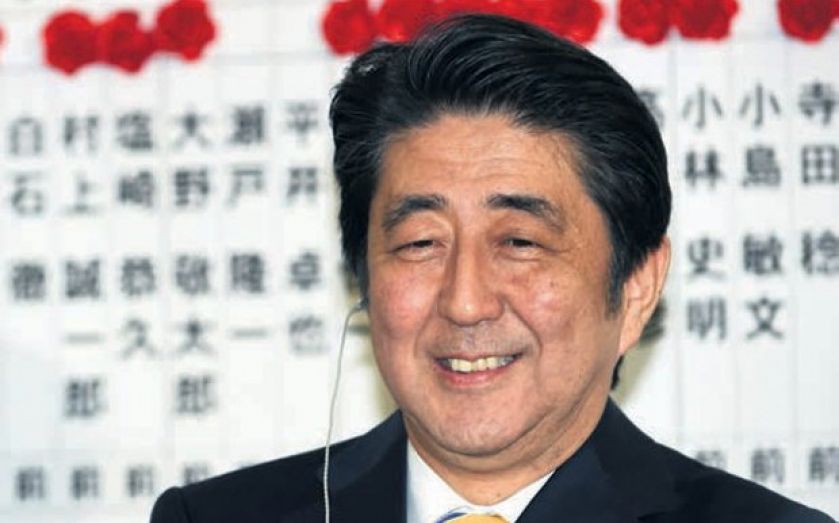Abe wins election as voter turnout hits a record low

JAPAN Prime Minister Shinzo Abe’s decision to call a snap election paid off yesterday as his party, the Liberal Democratic Party (LDP), claimed a landslide victory.
The LDP and its coalition partner Komeito won 325 seats in the 475-seat lower house – a loss of one seat from before the election. The LDP lost five seats and now holds 290 while the Komeito party won four and has 34.
The victory is being put down to a lack of organisation on behalf of the ruling parties’ opposition as opposed to strong support for the incumbents.
Abe called the election after data revealed the country had entered recession after contracting by 1.9 per cent in the three months to June and 0.5 per cent in the three months to September. This is despite unemployment continuing to drop.
Public discontent with the current government was reflected in the record low voter turnout which is expected to be 52.4 per cent.
An election victory should reaffirm Abe’s position as party leader and provide him with the support to continue with his economic polices.
His combination of policies, dubbed “Abenomics”, aimed to end Japan’s deflation which has been prevalent for two decades and boost growth.
The three parts, or “arrows”, of Abenomics are large amounts of state spending, structural reforms, and the purchase of assets by the central bank funded by the creation of new bank reserves – money that retail banks hold at the central bank.
“Abenomics is still halfway through, but I think we were able to leave an impression that we transformed the dark and stagnant economic conditions from two or three years ago,” Abe said in an interview with Japanese TV yesterday.
“I believe the public approved of two years of our Abenomics policies. But that doesn’t mean we can be complacent. My Abenomics policies are still only halfway done.”